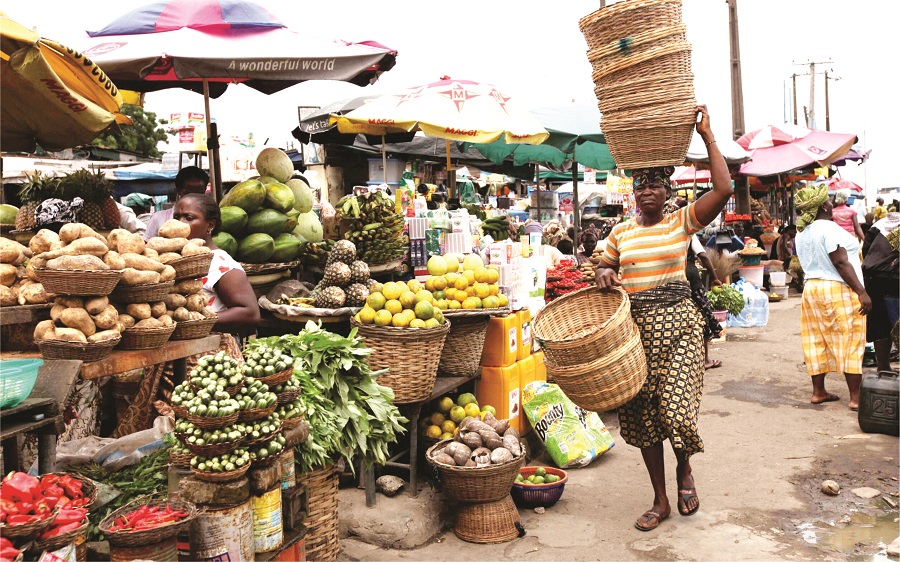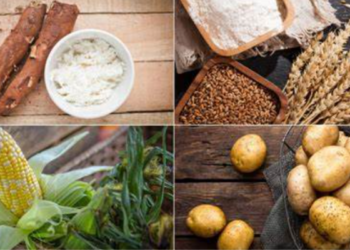Global Food Commodity prices declined in July 2021, recording a second consecutive decline, according to a United Nations benchmark report released recently. Accordingly, the Food and Agriculture Organization (FAO) price index ended July with 123 points, showing that it shed 1.2% of the previous month’s numbers. Compared to similar period in 2020, however, the 123 points was still 31% higher. The index, which tracks changes in the international prices of “the most globally traded food commodities” indicates that the July drop came mostly from cereals, vegetable oils, and dairy products.
According to the report, the FAO Cereal Price Index was 3% lower in July than in June 2021. This came as a result of a 6% decline in the price of maize on a month-on-month basis. That price decline in maize was the result of better-than-expected yields in Argentina and improved production prospects in the United States of America. Production from those two places was more than enough to douse the effect of production concerns in Brazil.
The report also noted that prices of barley and sorghum dropped due to reduced demand. On the other hand, the prices of wheat climbed 1.8% in July to a record high since 2014. The reason was attributed to dry weather and crop conditions in North America. For reasons not related to production, the report indicated that the international price of rice hit a two-year low due to lower demand arising from currency movements and high freight costs.
Again, FAO Dairy index fell 2.8% in July when compared with June because of low market activities occasioned by ongoing summer holidays in the Northern Hemisphere.
FAO Vegetable index declined by 1.4% to reach a five-month low, due to “lower biodiesel blending mandate in Argentina” which pressured the price of soybeans lower. On the other hand, the price of sunflower oil declined because of the prospect of record supplies for the 2021/2022 season.
A different story in Nigeria
Back home in Nigeria, the story was different. According to Africanews, “Nigerian families struggle to survive as food prices soar.” According to the publication, food prices have risen 22% in Nigeria since the start of the Covid 19 pandemic.
It is unthinkable that a country like Nigeria, with so much arable land, will have citizens that are caving in under the weight of increasing food prices. Unlike Argentina and the United States of America, where the FAO has projected that the prospect for improved supplies will reduce food prices further, the Nigerian situation is one where the activities of herdsmen, terrorists, and bandits have the potential of internalizing hunger in the country by sending food prices to the sky and out of the reach of those who need it most, due to the food scarcity that such miscreants are causing.
There is dignity in agro-labour
Nigerian youths are not helping matters though, as everyone seems to want a white-collar job. Farming is seen as something for peasants or those who never went to school. Not too long ago, the Director-General of the FAO, Qu Dongyu, while addressing the Y20 summit, noted that “the future of food belongs to the young people of today.”
Recalling the past, I remember how my father paid my school fees in those days with money from palm oil. As I look back to the same lands from where my dad harvested those palm fruits, the palm trees have all died with no replacements. The agricultural sector in Nigeria is a cash cow calling for attention, but the Nigerian government and people forgot about agriculture the moment oil was discovered, and we are now paying dearly for it.
Bottomline
It is time to go back to the basics; the government should resuscitate the agro-industry from grassroots farming. The youths should be encouraged and incentivized to take to farming. They should be given loans either interest-free or with very low interest. The United States government gives so much to its farmers to keep the industry alive and food prices low.
Nigerian youths should take to farming with pride, after all, there is dignity in labour. Ask Olaniyi Balogun, a Nigerian immigrant who is a big-time farmer in the US. Those are the kinds of people that the Nigerian government should consult with, for ways to get it done right in Nigeria.
We cannot sit and watch food prices bring hunger to the dinner table of Nigerians, while uncultivated lands lie fallow, profiting no one.














I think the real reason why food prices seem to be on an upward trajectory is because of the security challenges the country is currently facing. Farms have become death zones, a place to be dreaded by farmers. People are too scared to go into their farms and even those that dare to go meet their waterloo thus, striking more fear in the hearts of those that opted to stay back.
On the issue of youths seeing farming as a job for the uneducated. I feel the main reason youths don’t go into farming is as a result of funding. Commercial farming requires a lot of funds, funds that are not easily accessible to the youths.
You have said it all nwanne
Very true, thank you.
Maybe you need to do more than advice, play an active role. You can also Get involved!!!